The Vietnam War opened the credibility gap. What we’ve learned since has only widened it.
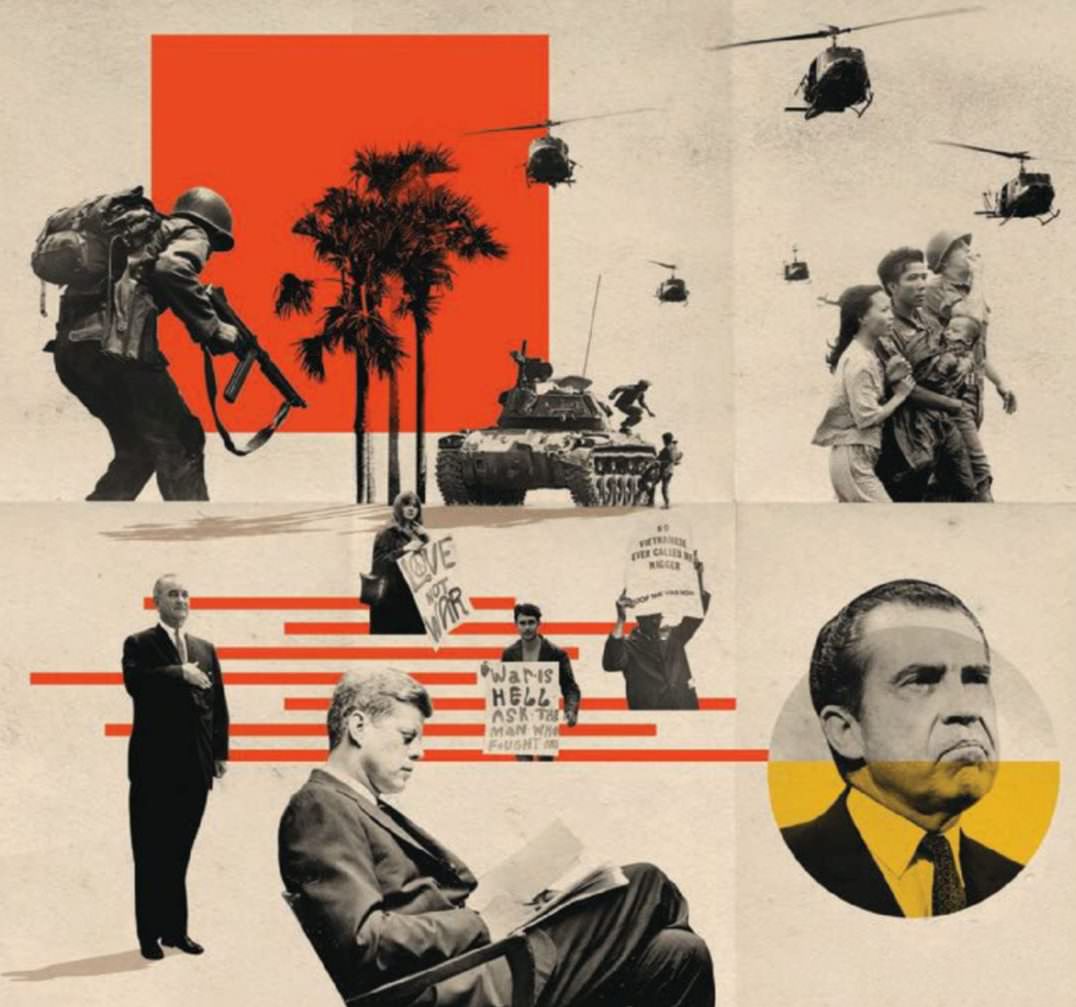
ON APRIL 30, 1975, when the last helicopter lifted off the roof of the U.S. Embassy in Saigon, the Vietnam War, the most consequential event in American history since World War II, ended in failure. More than 58,000 Americans and as many as 3 million Vietnamese had died in the conflict. America’s illusions of invincibility had been shattered, its moral confidence shaken. The war undermined the country’s faith in its most respected institutions, particularly the military and the presidency. The military eventually recovered. The presidency never has.
It did not happen all at once, this radical diminution of trust. Over more than a decade, the accumulated weight of critical reporting about the war, the publication of the Pentagon Papers in 1971, and the declassification of military and intelligence reports tarnished the office. Nor did the process stop when that last chopper took o›. New evidence of hypocrisy has continued to appear, an acidic drip, drip, drip on the image of the presidency. The three men who are most responsible for the war, John F. Kennedy, Lyndon B. Johnson, and Richard Nixon, each made the fateful decision to record their deliberations about it. The tapes they left behind—some of them still newly public, others long obscured by the sheer volume of the material—are extraordinary. They expose the presidents’ secret motives and fears, at once humanizing the men and deepening the disillusionment with the office they held.
Esta historia es de la edición October 2017 de The Atlantic.
Comience su prueba gratuita de Magzter GOLD de 7 días para acceder a miles de historias premium seleccionadas y a más de 9,000 revistas y periódicos.
Ya eres suscriptor ? Conectar
Esta historia es de la edición October 2017 de The Atlantic.
Comience su prueba gratuita de Magzter GOLD de 7 días para acceder a miles de historias premium seleccionadas y a más de 9,000 revistas y periódicos.
Ya eres suscriptor? Conectar

Catching the Carjackers - On the road with an elite police unit as it combats a crime wave
On August 7, 2022, Shantise Summers arrived home from a night out with friends around 2:40 a.m. As she walked from her car toward her apartment in Oxon Hill, a Maryland neighborhood just southeast of Washington, D.C., she heard footsteps behind her. She turned and saw two men in ski masks. One put a gun to her face; she could feel the metal pressing against her chin. He demanded her phone, wallet, keys, and Apple Watch. She quickly handed them over, and they drove off in her 2019 Honda Accord.

The Most Remote Place in the World - Point Nemo is Earth's official "middle of nowhere." A lot seems to be going on there.
It’s called the “longest-swim problem”: If you had to drop someone at the place in the ocean farthest from any speck of land—the remotest spot on Earth—where would that place be? The answer, proposed only a few decades ago, is a location in the South Pacific with the coordinates 48 52.5291ᤩS 123 23.5116ᤩW: the “oceanic point of inaccessibility,” to use the formal name. It doesn’t get many visitors. But one morning last year, I met several people who had just come from there.

You Are Going to Die - Oliver Burkeman has become an unlikely self-help guru by reminding everyone of their mortality.
"The average human lifespan," Oliver Burkeman begins his 2021 megabest seller, Four Thousand Weeks: Time Management for Mortals, "is absurdly, terrifyingly, insultingly short." In that relatively brief period, he does not want you to maximize your output at work or optimize your leisure activities for supreme enjoyment. He does not want you to wake up at 5 a.m. or block out your schedule in a strictly labeled timeline.

Washington's Nightmare - Donald Trump is the tyrant the first president feared.
Last November, during a symposium at Mount Vernon on democracy, John Kelly, the retired Marine Corps general who served as Donald Trump's second chief of staff, spoke about George Washington's historic accomplishments— his leadership and victory in the Revolutionary War, his vision of what an American president should be. And then Kelly offered a simple, three-word summary of Washington's most important contribution to the nation he liberated.

The Elite College Students Who Can't Read Books - To read a book in college, it helps to have read a book in high school.
Nicholas Dames has taught Literature Humanities, Columbia University's required greatbooks course, since 1988. He loves the job, but it has changed. Over the past decade, students have become overwhelmed by the reading, College kids have never read everything they're assigned, of course, but this feels different. Dames's students now seem bewildered by the thought of finishing multiple books a semester. His colleagues have noticed the same problem.
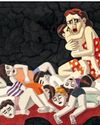
What Zoya Sees
Long a fearless critic of Israeli society, since October 7 Zoya Cherkassky-Nnadi has made wrenching portraits of her nation's sufferingand become a target of protest.
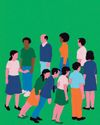
Malcolm Gladwell, Meet Mark Zuckerberg
The writer’ insistence on ignoring the web is an even bigger blind spot today than it was when The Tipping Point came out.
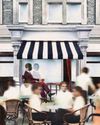
Alan Hollinghurst's Lost England
In his new novel, the present isnt much better than the past—and its a lot less sexy.
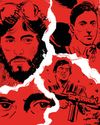
Scent of a Man
In a new memoir, Al Pacino promises to reveal the person behind the actor. But is he holding something back?

THE RIGHT-WING PLAN TO MAKE EVERYONE AN INFORMANT
In Texas and elsewhere, new laws and policies have encouraged neighbors to report neighbors to the government.